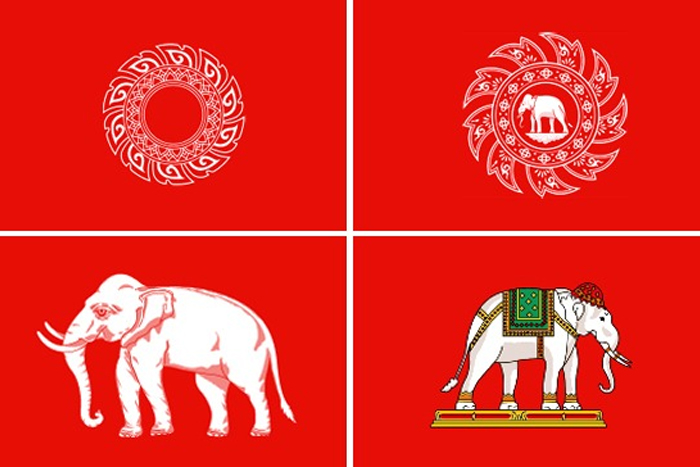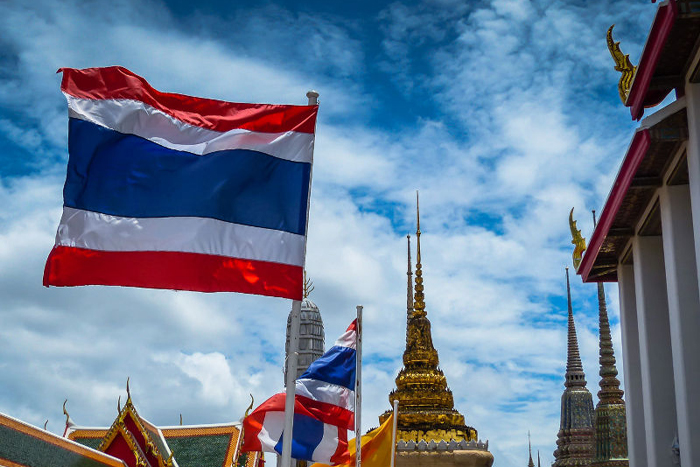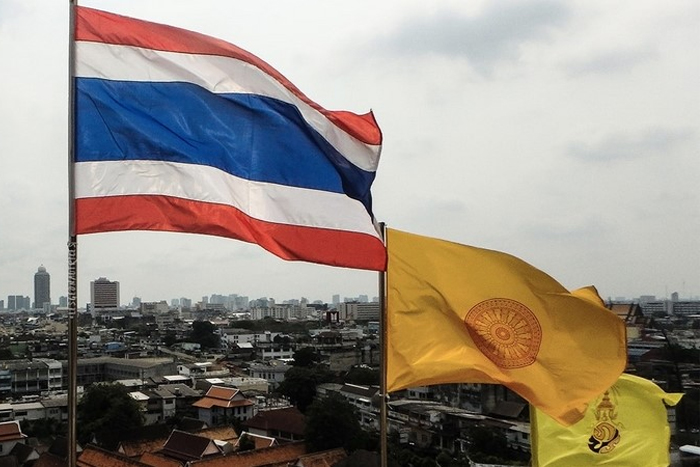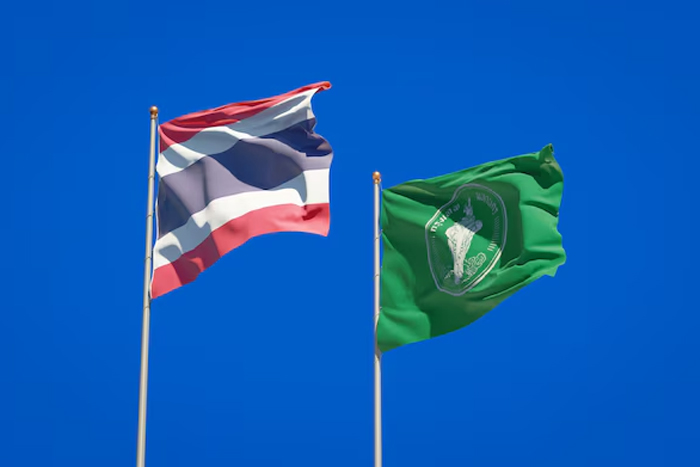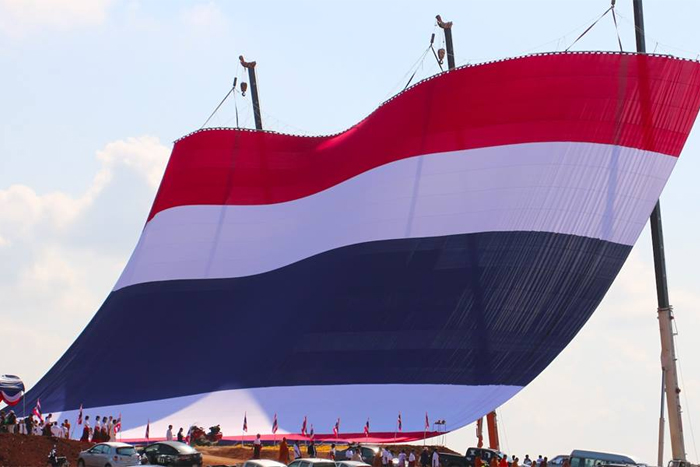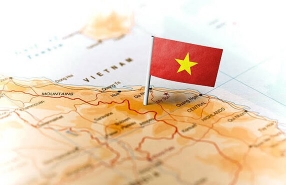Thailand enchants travelers with its breathtaking landscapes and the warm welcome of its inhabitants. Another element catches the visitor's eye: the omnipresent tricolor Thailand flag. From the glittering temples of Bangkok to the dreamy beaches of the south, its red, white, and blue stripes float proudly as a constant reminder of the country's rich history. Have you ever wondered what this national symbol really means? Let's dive together into the secrets of the flag of Thailand. Its fascinating history reflects the very essence of the kingdom, from its centuries-old monarchy to its Buddhist fervor. Understanding this flag is like opening a window onto the soul of Thailand and giving a new dimension to your trip to Thailand.
1. Introduction to the flag of Thailand
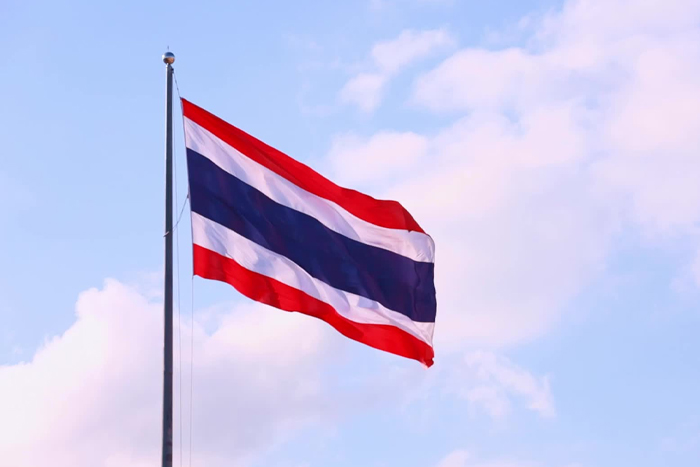
Thailand, the land of smiles and striking contrasts, captivates travelers worldwide with its natural beauty, rich culture, and legendary hospitality. Among the many symbols embodying the essence of this kingdom, the Thailand flag holds a prominent position. Ubiquitous, from the vibrant heart of Bangkok to the paradisiacal islands of the south, the tricolor flag of Thailand with its red, white, and blue stripes silently narrates the history and values of the Thai nation. For the discerning visitor, understanding the significance of this national emblem provides a valuable key to deciphering the soul of the country. In this article, we will take you on a fascinating journey through the history, symbolism, and cultural role of the Thailand flag, offering insights that will enrich your travels in the Kingdom of Siam. Discover how the flag of Thailand reflects the country's proud heritage, from its ancient monarchy to its deep-rooted Buddhist traditions, and learn to appreciate this powerful symbol of Thai identity during your trip to Thailand.
2. History of the Thailand flag
The history of the Thailand flag is as rich and complex as that of the country itself. Its origins date back to 1782, during the founding of the Chakri Dynasty by King Rama I. At that time, the kingdom's flag was simply red, symbolizing the nation and the blood shed in its defense.
Over the centuries, the Thailand flag underwent several significant evolutions:
Under the reign of King Rama II (1809-1824), a white elephant was added to the center of the red flag, as the elephant holds great royal symbolism.
King Rama IV (1851-1868) modified the flag of Thailand by adding a white circle around the elephant to make it more visible at sea.
In 1916, King Rama VI introduced a new design: five horizontal stripes alternating between red and white, symbolizing the country's five main rivers.
Finally, on September 28, 1917, King Rama VI adopted the current Thailand flag, consisting of five horizontal stripes: red, white, blue (center stripe, twice as wide as the others), white, and red.
This evolution reflects the political, cultural, and diplomatic changes Thailand has undergone, from an isolated kingdom to a modern nation open to the world.
Nowadays, the flag of Thailand, known as the "Thong Trairong" (tri-colored flag), consists of five horizontal stripes in three colors. The Thong Trairong became Thailand's official flag for all purposes. Since 2017, September 28 has been celebrated as National Flag Day, in honor of King Rama VI who created it over 100 years ago. This Thailand flag, symbolizing Thai patriotism, is ubiquitous during national events and an essential emblem of the country's identity.
3. Meaning of the colors in the Thailand flag
The flag of Thailand, with its distinctive tricolor design, is imbued with deep symbolism. Each hue in the Thailand flag represents a fundamental pillar of Thai society:
Red: This vibrant color in the Thailand flag embodies the Thai nation and its people. It symbolizes the blood courageously shed to preserve the country's independence throughout its tumultuous history. In the flag of Thailand, red also evokes the strength, vitality, and unwavering spirit of the Thai populace.
White: The pristine white stripes in the Thailand flag represent purity and are closely associated with religion, primarily Theravada Buddhism, which is central to Thai life and culture. This color in the flag of Thailand symbolizes peace, harmony, and the untainted teachings of Buddhism that guide society.
Blue: The central blue stripe, wider than the others in the Thailand flag, symbolizes the revered monarchy. Traditionally associated with royalty in Thailand, blue in the flag of Thailand represents the crucial role of the monarchic institution in maintaining national unity and identity.
The arrangement of these colors in the flag of Thailand illustrates the harmony and interdependence among these three pillars: nation, religion, and monarchy. Together, they form the core of Thai identity, beautifully represented in the Thailand flag.
4. Other important flags in Thailand
While the Thailand flag with its iconic tricolor design stands as the preeminent national symbol, the Kingdom boasts several other significant banners that merit attention. These flags, though less familiar to visitors, hold equal importance in Thai culture and complement the flag of Thailand in representing the nation's rich history and identity. Let's explore these emblems that complete Thailand's vexillological tapestry:
The Royal flag: A symbol of the monarchy, existing alongside the Thailand flag
The Buddhist flag: Representing national spirituality and religious heritage
The armed forces flags: Emblems of military pride and national defense
The provincial flags: Reflections of regional diversity within the unified Thailand flag
The Bangkok flag: Symbol of the vibrant capital, distinct from the national flag of Thailand
Each of these flags plays a unique role in Thai civic and cultural life, enriching the country's symbolic landscape beyond the national flag of Thailand. By examining these banners, one can gain a deeper appreciation of the complexity and richness of Thai society, understanding how they coexist with and complement the Thailand flag. This exploration reveals a nuanced picture of national identity, where various symbols work in harmony with the flag of Thailand to represent different facets of the Kingdom.
5. Advice for travelers
For visitors, respecting and understanding the importance of the Thailand flag can greatly enrich the travel experience:
Respect for the flag: Avoid touching or handling the flag without authorization. Do not use it as clothing or decorative accessory in a disrespectful manner.
Souvenirs: If you wish to buy flag-related souvenirs, opt for quality items that respect its symbolism. Avoid articles that could be perceived as disrespectful.
Photography: Be mindful when taking photos including the flag, ensuring not to capture it in positions or contexts that could be considered disrespectful.
Learning: Take advantage of your stay to learn more about Thai history and culture. National museums often offer detailed information about the flag and its importance.
The flag of Thailand is much more than just a piece of colored cloth: it's a living symbol of Thailand's history, culture, and values. By understanding its importance, you'll add an extra dimension to your trip to Thailand, allowing you to better grasp the soul of this fascinating country. Whether you observe the flag flying above a golden temple or waving in the sea breeze, you will now see in it the reflection of Thai pride and identity.
For a satisfying experience that exceeds your expectations, please CONTACT ATOUR ASIA,
Thailand Travel Agency now


